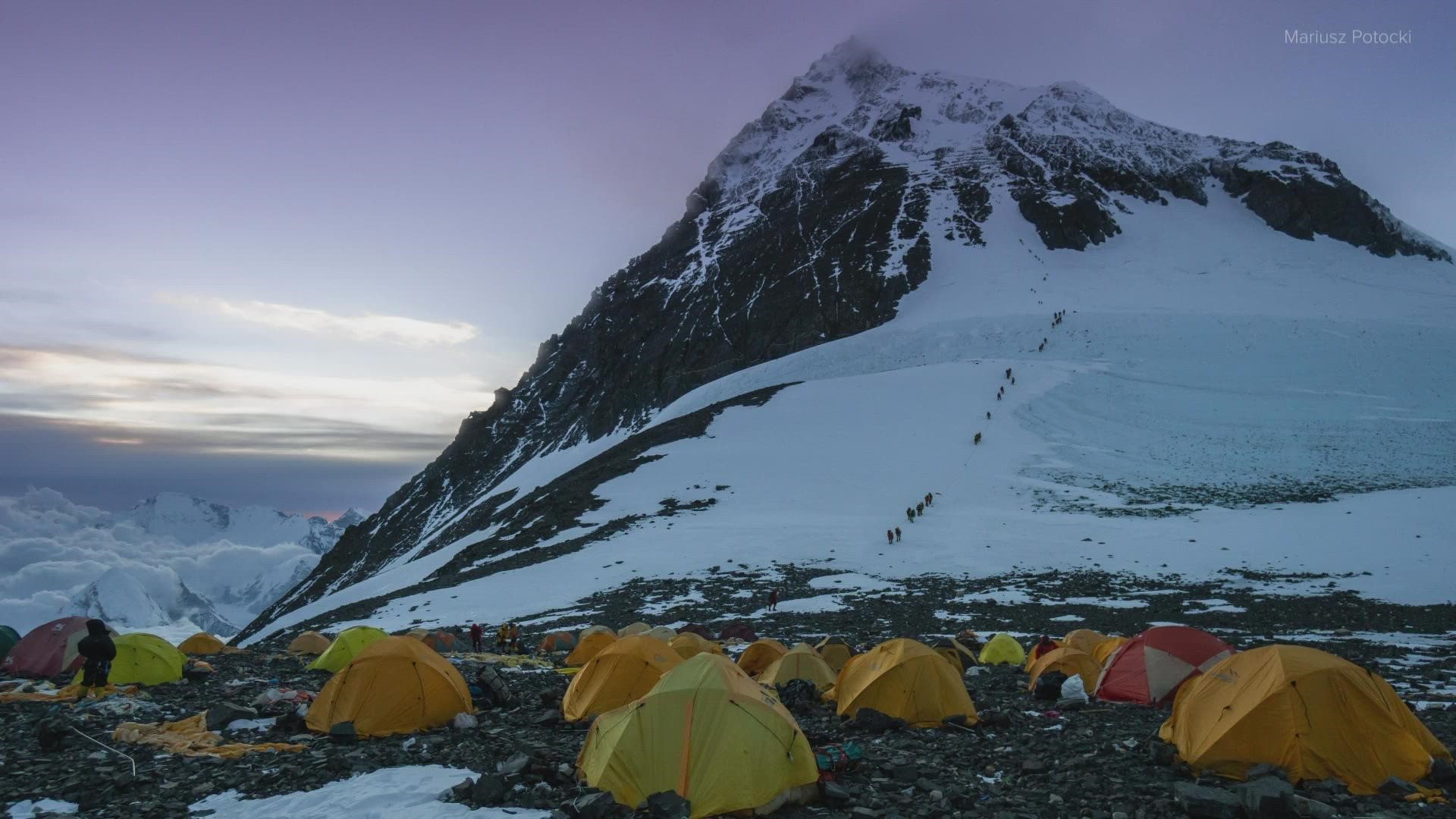MAINE, USA — Six researchers from the University of Maine traveled to Mount Everest and are releasing their findings from their ice research conducted there.
Near the top of the mountain in the Himalayan Mountain Range, on the border of China and Nepal, Paul Mayewski, Ph.D., lead the team nearly three years ago as part of a National Geographic expedition.
Their plan was to reveal the secrets held in the giant glaciers near the top of the highest mountain on earth.
“It was amazing. It was a fantastic adventure. Not only climbing Everest but scientifically,” Mariusz Potocki, research team member and graduate student, said.
The team’s goal was to determine whether the highest elevation point of Earth has been impacted by human activity.
Climbing Mount Everest is no easy feat, but the team would face another challenge: climbing the mountain with scientific equipment.
After weeks of acclimation, Potocki would use that equipment to drill out an ice core on the South Col glacier.
"The drill is a one and a half meter tube, empty inside, with scrappers and knives on the end," Potocki said.
Upon completing his task, Potocki became the world-record holder of the highest ice core ever taken at 26,312 feet.
Findings from that ice core have just been released, and the discovery paints a grim outlook.
“Every year, about 2 meters of ice is gone." Said Potocki.
“The surface of that glacier has transitioned from a snowy white surface, which reflects a lot of incoming radiation to a darker surface that absorbs a great deal of heat. And at this rate, which is expected to continue if not increase, the glacier will disappear in the next 20 to 30 years," Mayewski said.
What that means to Mainers is more symbolic, in that fewer glaciers at extremely high elevation means less water down here. But what it means for the people in Nepal is a matter of life and death.
“Imagine if you didn't have a well, but you had to pump from some distant place to a water tower. And when that water tower runs out of water, that's it," Mayeski said. "There are entire civilizations that have collapsed because of a lack of water.”
He went on to explain that thousands, even tens of thousands, of people worldwide, depend on mountain glaciers as water sources.
“It's like putting the final nail in the coffin, in terms of finding out how much of the planet we have impacted.”
University of Maine researchers say this information shows that no part of the globe is immune to climate change, but knowing what we are in for can help us prepare for the future.

